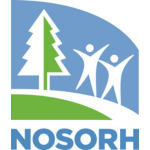by Beth Blevins
Illinois is tackling the opioid crisis in its rural communities through a series of opioid summits sponsored by the Illinois Center for Rural Health (ICRH).
“We realized there were no coalitions or groups working on opioid misuse in rural Illinois,” said Julie Casper, ICRH Director. “Community Health Needs Assessments have consistently listed drug use and addiction as problems in their communities, so making opioid misuse a priority was a natural conclusion.”
The first “Opioid Crisis Next Door” summit was held June 2016 with the stated purpose of building local coalitions to increase awareness of opioid and heroin use in rural communities and to identify ways for communities to respond to the crisis. At the end of the summit, attendees took a pledge to work together to combat opioid misuse in rural Illinois, Casper said.
Local coalitions, healthcare providers, and other rural community stakeholders attended the “Opioid Crisis Next Door: Identifying, Organizing and Activating Local Resources” summit in October 2017.
Each subsequent summit has added a specific focus. The opioid summit held in March of last year focused on “,” with the goal of encouraging dialog among providers. The October 2017 summit looked at “.” The next summit, scheduled for June 27 of this year, will be focused on “Keeping the Momentum: Are We Hitting the Mark?” and will include naloxone training for overdose treatment.
“All the summits have a rural focus, but it’s been different aspects of rural,” Casper explained. The summits have had an average of 100 attendees and all have been held in the state capital of Springfield, centrally located and within a few hours’ drive for everyone in the state, Casper said. Summits are held twice a year now, she said, because they realized they cannot wait a full year for the next one, there is so much to go over.
Rural stakeholders from across Illinois participate in a 2017 “Opioid Crisis Next Door” summit.
The target audience for the summits includes rural hospitals, rural providers, pharmacists, law enforcement, policymakers, community leaders, and behavioral healthcare providers. In addition to ICRH, the summits receive support from the Illinois Health and Hospital Association, the Illinois Pharmacists Association, the Healthy Communities Partnership, and the Illinois Critical Access Hospital Network (ICAHN).
“We are very fortunate that at the state level the reduction of opioid misuse is a priority for the governor and for the director of the Illinois Department of Public Health (IDPH),” Casper added. (ICRH is part of IDPH). “Nirav D. Shah, M.D., J.D., IDPH Director, has opened every conference and will open the next meeting.”
The summits have offered a variety of speakers, including physicians on treatment options, community leaders and hospital administrators on creating community coalitions, and past opioid users sharing their stories of addiction and recovery.
The opioid summits are funded using a small amount of Rural Hospital Flexibility Grant money, Casper said, with the rest of the cost, mostly for food and the rental of the space, paid by the attendees.
Although opioid misuse may not be as prevalent in Illinois as it is in other states, the number of opioid-related overdoses is growing every year, according to Heidi Clark, IDPH Division Chief of Health Data and Policy. While there were , there were an estimated 2,093 overdoses in 2017, Clark said, a number she attributes to the increasing use of dangerous synthetic opioids like fentanyl and its analogues.
“Opioid abuse is a statewide problem but there are specific issues in different parts of the state and among different demographics,” Clark continued. “In some of the more rural areas, there’s more prescription drug misuse, whereas in urban areas you’ll see more emerging drugs such as new fentanyl analogues. But rates of neonatal abstinence syndrome (NAS) are growing in rural areas in Illinois much faster than urban areas.” NAS is when a baby is born physically dependent on drugs and experiences withdrawal symptoms after it’s born.
IDPH has received a Comprehensive Addiction and Recovery Act first responders grant, Clark said, which is being used to fund naloxone training in 18 rural Illinois counties and to distribute naloxone to law enforcement who have taken the training. It also funds two care coordinators in those counties. “Once someone ODs and goes to the emergency room, they can be connected to a care coordinator who can help them navigate barriers,” Clark said. “If they don’t have insurance, the care coordinator might help them get insurance. If they have insurance, the coordinator will help them find a treatment provider who accepts that insurance and is accepting new patients. The care coordinators are there to make entering treatment an easy choice rather than a scary unknown.”
From her work with the summits, Casper said she has discovered that there are many people in the state who care about those with opioid addictions. “They care about them as people,” she said. “They see that they have value. You know there are a lot of law enforcement who believe that, but they’re not the ones who make the news. It makes you feel really good that there are people out there helping people who are struggling with these issues.”
————————————————————————————
Does your SORH have a “Promising Practice”? We’re interested in the innovative, effective and valuable work that SORHs are doing. Contact to set up a short email or phone interview in which you can tell your story!
